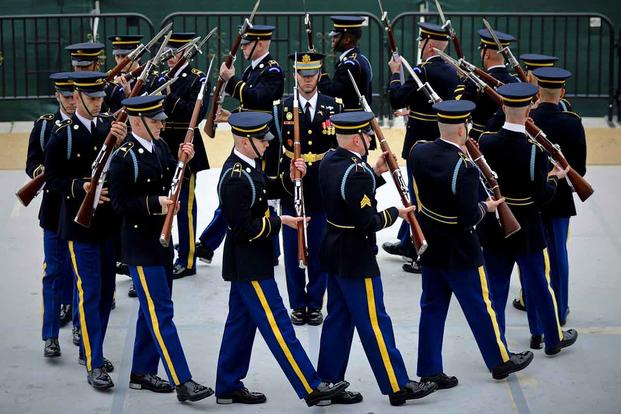Recently, I asked my online contacts on several social-media platforms to share the best advice they received when separating or retiring from military service. The responses generously flooded in from veterans, active-duty service members and even spouses, pointing to lessons learned and advice heeded (or not) to make a successful transition to a meaningful, post-military career.
Below are 20 of the tips shared online, as the entire list was too long for this column. I hope this information is as impactful and valuable to you, the reader, as it has been to those who followed and contributed to these threads online.
- Networking 101: Always ask if you can network and what you can do to assist the person. Job search: Look for roles that fit you -- Being an information technology (IT) project manager is not a good fit if you only know how to use Office products and plug in a modem.
- Several friends advised me that it was OK to take a break for a while before rushing into a new job. As one friend put it, "You've worked for the same employer for over 20 years. How often do you see that in the civilian world?" It's OK to take a few months for yourself to figure out who you are without a uniform on and what you want to do without someone else directing you.
- Don't believe the myth that hiring managers are going to line up to hire you, because they love vets because we are punctual, mission focused, good team workers, etc. You should demonstrate true value to the hiring managers, the ability to solve the problem that the hiring manager is facing.
- Tailor your CV (curriculum vitae) to the job you seek. Avoid military acronym usage. Smile and be naturally enthusiastic during the interview process.
- Be proud of your service but never assume you're entitled to special treatment or privileges. Also, be as loyal to your co-workers as you were to your brothers and sisters in arms.
- Having stood by my career Marine Corps husband of 20 years: His networking with already transitioned and employed former Marines was key. Having a professional revise his six-page resume to civilian format and language. Emotional therapy. Decompression time. Acceptance that it would take a few years and jobs to settle.
- It's going to be a roller coaster of emotions, your ego will get hurt and you will be confused at times. But through it all, remember all you've done in the military and all obstacles you overcame. ... Stay positive and remain steadfast and confident; you got this.
- You will leave here never being the same person again. You will be a better and stronger person.
- Prepare mentally to start back in the trenches and work your way back up into leadership positions
- I had a conversation with a buddy; we both got into volunteering after we got out of the Navy. That helped a good deal.
- Just because you've been through a fire fight or two doesn't mean that you are ready for college. They are two different games: You were trained for combat; you weren't trained for school. Stay humble, keep an open mind and take advantage of every opportunity.
- Plan early. I started planning almost two years before leaving. It almost was not enough time. If you can pick a degree up while in, even better. Ideally, you should have four plans -- one as your primary target industry/company, two backups and one in the event you should change from your desired field to an alternate. It may sound tedious, but it works.
- Don't sell your rank; sell your impact and skills. Additionally, while your military service highly influences who you are, you are no longer in the military. Listen, learn, adjust and drive on.
- It's not what you know, or where you have been; it's who you know, so network ...
- Transition isn't new. It's just new to you. Get out there and meet people who have "been there, done it, and have the T-shirt!" It sounded really corny at the time, but it was spot on. The more I talked to people (networked), the easier it was for me to piece together the puzzle called transition.
- Transitioning service members must be prepared to answer the question, "What do you want to do?" While this may seem like an obvious, simple question that should be easily answered, the enculturation of service members to be humble professionals and selfless teammates makes it extremely difficult for them to articulate what specific position they want and why they are the most qualified professional for that role.
- If you haven't earned a military retirement, consider continuing your career in the reserves. The connections you will make and the additional skills you will learn can be a great asset to your post active-duty career. My commanding officer (CO) gave me this valuable advice 30 years ago.
- Don't expect civilians to understand.
- If you are talking more than the person interviewing you, you are failing.
- Always pay yourself first. This means, even if it is a small amount, every paycheck, put money away. You work hard, so pay yourself first.
Thank you to those who shared their insights and advice.
Keep Up with the Ins and Outs of Military Life
For the latest military news and tips on military family benefits and more, subscribe to Military.com and have the information you need delivered directly to your inbox.












